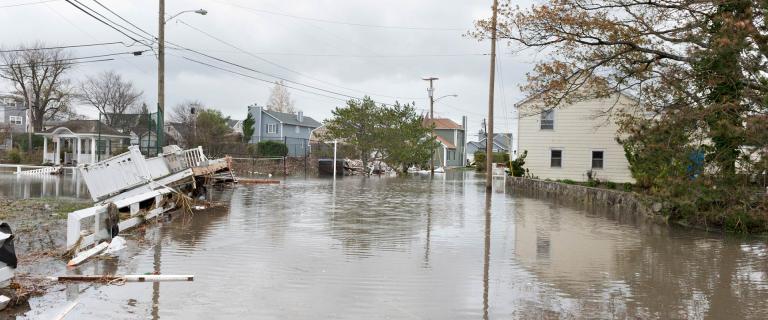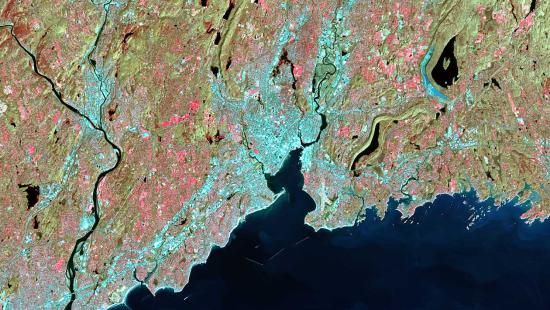

A new report on climate resilience in Connecticut is recommending that the state take more steps to dismantle underlying inequality that makes vulnerable communities more susceptible to the effects of climate change.
The report, a collaboration between the Yale School of the Environment, the Yale School of Public Health Center on Climate Change and Health, and Vermont Law School, details ways the state can mitigate the impact of natural disasters on vulnerable communities, which are facing the challenges of disproportionate exposure to climate change, increased underlying stressors, and limited access to recovery resources.
“Climate change is a public health crisis that has different impacts on various populations and communities. The communities that will be impacted 'first and worst’ as the climate crisis continues to unfold are often the same communities that disproportionately bear the brunt of environmental harm due to the racial or socioeconomic makeup,’’ the report states.
Vulnerable populations reported higher instances of power outages, food insecurity, and lack of access to basic resources needed to remain safe during climate events, the report found.
Published in December, the report is part of the work being done by the Governor’s Council on Climate Change (GC3), which Gov. Ned Lamont tasked with developing and implementing adaptation and mitigation strategies to address climate change across the state. It summarizes the findings from a semester-long study in spring 2021, during which students at Yale and Vermont Law School researched the experiences of vulnerable populations affected by climate change and natural disasters.
“The report brings the lived experiences of residents from Connecticut’s environmental justice communities into climate change policy discussions, and it models an inclusive approach to community engagement. This is important because when policymakers incorporate the perspective of those most impacted by climate change, the resulting policies are more equitable and effective,’’ says Laura Bozzi ’04 MEM, ’13 PhD, director of programs for the Yale School of Public Health’s Center on Climate Change and Health.
Katie Ebinger ’22 MEM and Blanca Begert ’21 MESc, worked on the specific issues of mental health and food insecurity in vulnerable communities. Begert says that the research clearly pointed to issues associated with large structural inequalities.
“We found that vulnerabilities that would be exacerbated by a climate extreme weather event, for example, were really based on preexisting inequality in all of our social and political systems,’’ says Begert. “A lot of the real work to reduce vulnerability and help communities will be in reducing inequality in general, providing more community decision-making power as well as larger social programs.”
The report recommends a series of steps to help better address these issues.
“The goal at the outset was to think about kind of upstream solutions versus reactionary solutions,’’ says Ebinger. “Understanding where resources need to be allocated and the needs of different communities is really important.”
Recommendations in the final report include (but are not limited to):
- Communicating disaster-related information with residents before, during, and after a climate event and using a variety of communication methods that are culturally and linguistically accessible.
- Investing in flood mitigation in vulnerable communities to improve resilience to storm-related impacts.
- Prioritizing the fortifying and weatherizing of homes of low-income residents, BIPOC, and persons with disabilities.
- Partnering with delivery services and subsidizing delivery fees for participants using SNAP benefits who reside in food-insecure areas.
- Providing emergency kits to residents in need that contain flashlights, batteries, blankets, and other necessities as well as a list of resources and how to access them.
- Improving accessibility and affordability of community gardens in food-insecure areas.
- Investing in tree canopy, cooling centers, and other strategies to mitigate the cumulative impact of extreme heat and poor air quality.
